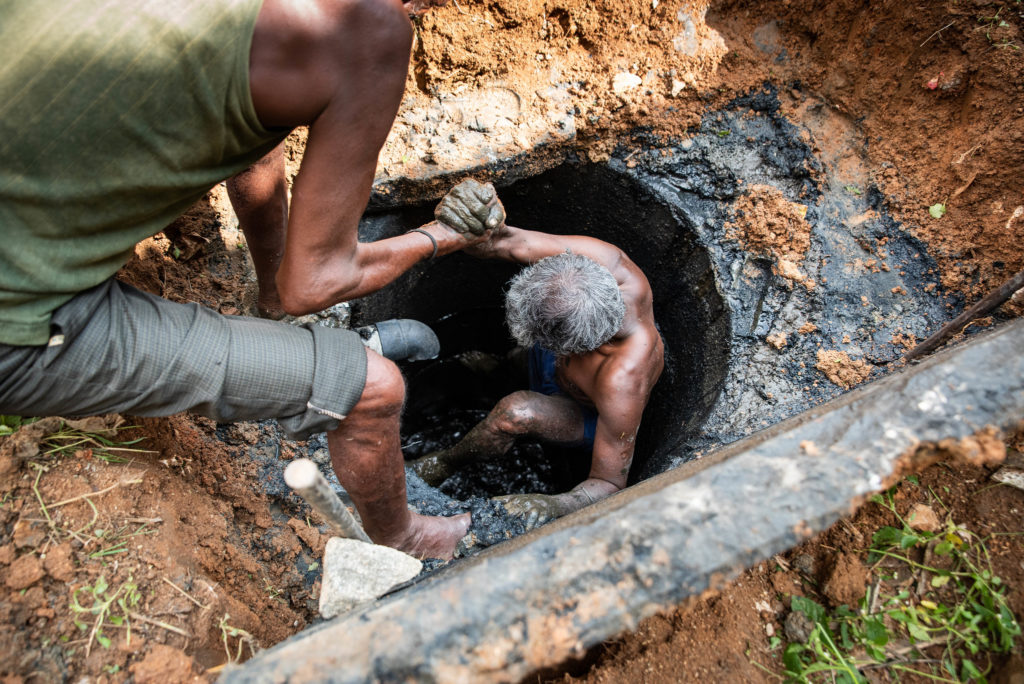The Covid-19 lockdown and the associated social restrictions have exacerbated the dire situation of Muslims and Christian Dalits in India. The pandemic has added new strains to the existing challenges faced by minorities in India, however, it did not create them.

Over the past year, India’s government has introduced several legal provisions that have had the effect of placing pressures on religious minorities.
For example, in August 2019, the Bharatiya Janata Party (BJP) government revoked the special status to the Muslim-majority state of Jammu and Kashmir, and enforced the cow-slaughter and anti-conversion laws. Despite the ‘Protection from Lynching Act 2017’ being in force, the government has done little if anything to ensure investigations and prosecution of those responsible for both attacks on beef consumers and around 400 attacks against Christians accused of forced conversion.
In December 2019, the BJP government enacted the Citizenship (Amendment) Act, an act that fast-tracks citizenship for migrants other than Muslims from Afghanistan, Bangladesh and Pakistan. The subsequent riots in February 2020 added to the anti-Muslim narrative. However, the emergence of Covid-19 has added new pressures on minorities.
Misinformation and Muslims being accused of spreading coronavirus
Among others, religious minorities have been accused of spreading the virus and have been targeted as a result. In one instance, Tablighi Jamaat, an Islamic revivalist missionary group, was accused of spreading Covid-19 after it has held its annual congregation in New Delhi’s Nizamuddin Mosque. It was followed by social media propaganda on ‘Corona Jihad.’ Rather than addressing the misinformation, prominent BJP politicians called for a boycott of shops run by Muslims, and, in doing so, added authority to the misinformation. Similarly, the health secretary of the Tamilnadu state government begun to report daily data on ‘infections from a single source.’
The spread of misinformation blaming Muslims for the spread of Covid-19 has had a profound effect on the communities now struggling to make their living. Furthermore, Muslims have been facing severe social stigma that results in them being refused tests and/or treatment. The propaganda is also linked to acts of violence against Muslims. Such attacks were reported in Kadarakoppa village in Karnataka state and also in Harewali village near New Delhi.
Sanitary workers, half of whom are Christian, are forced to work without PPE
Similarly, the Covid-19 lockdown has placed additional strains on the situation of Christian Dalits, especially among the sanitary workers who are forced work without any or any proper personal protective equipment (PPE).
Religious minority groups are particularly affected as nearly fifty per cent of the ten million sanitary workers in India, the vast majority of whom are Dalits (98% according to Water Aid in 2018), are Christians. This high number of Dalits in sanitary work derives from the caste-based division of labour in the Hindu system. This minority group is denied equal social protection with others simply because they are Christians. According to Presidential (SC) Order 1950, no person who professes a religion other than Hinduism shall be deemed to be a member of Scheduled Caste. Thus, Hindu Dalits, who are provided with a place in the SC (Scheduled Caste) list, are entitled to constitutional state benefits, including reservations in education and employment. As a result, a perceivable number of Hindu Dalits have been able to move up the social ladder with the aid of state benefits, while Christian Dalits continue as manual scavengers.
Their frontline exposure to waste makes them extremely vulnerable to Covid-19 especially as they have not been provided with adequate PPE. This is despite the Indian Prohibition of Manual Scavenging Act 2013 which prescribes provision of protective hand gloves, face masks and protective boots to these workers. The need for such PPE is even greater now with the dangers posed by Covid-19. And while the risks posed by the disease to sanitary workers are known and well-documented, relevant stakeholders are not playing their part to both provide PPE and warn the workers of these risks, worried that they may refuse to work.
Religious practices, such as burials, are also being targeted
Covid-19 misinformation in India has also been affecting minorities’ religious practices, including burials. For example, a mob of local Hindu residents prevented the burial of a Christian doctor in the cemetery meant for Christians, claiming that the burial of the body would infect the neighbourhood. Because of the threat posed by the mobs, the family had to bury the body in a remote crematorium meant for the Hindus.
The above are only a few examples of how Covid-19 has been affecting the already challenging situation of religious minorities in India. The situation calls for a response that, at minimum, must include addressing the misinformation and dangerous propaganda. Such misinformation and propaganda, that while affecting religious minorities most of all, will ultimately be dangerous for all in the country.
Clement Arockiasamy, a Chevening Scholar, recently completed his MA in Development Studies at IDS. He is a development practitioner in India working for the equal treatment of the Dalits by the State and the Dalits among minorities.
